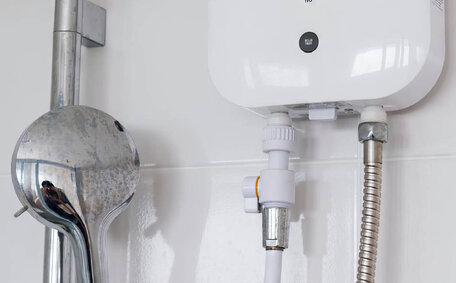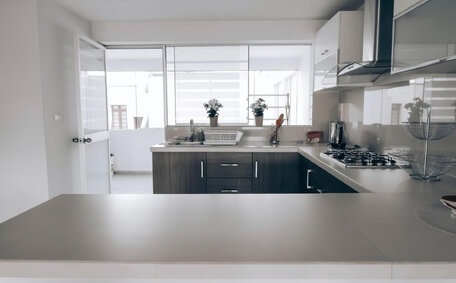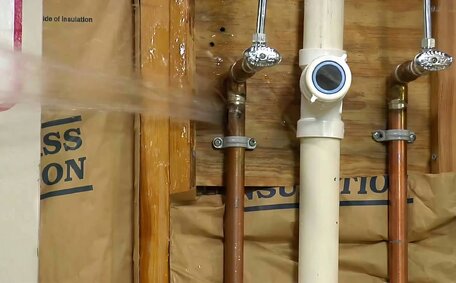Introduction to Pipe Relining
Pipe repairs can often benefit from the trenchless method of pipe lining, which refurbishes damaged pipes without the need for excavation. It involves inserting a resin-impregnated liner within existing pipe, thereby forming a new pipe inside the existing one. As the resin cures, it hardens to form a smooth, jointless new pipe wall right inside the old pipe.
Pipe relining can often be employed to mend your sewer line or various type pipe that have become damaged over time due to intruding tree roots, ground movement, corrosion, or just general wear and tear. It offers a cost-effective, minimally invasive alternative to full pipe replacement for homes.
Evaluating if DIY Pipe Relining is Feasible
When considering a plumbing project like diy plumbing for pipe relining, you need to honestly assess your knowledge and skills. Before you go ahead with trenchless pipe repair, Make sure you have a sound understanding of drainage systems, pipe materials, resin formulations, pressure management, and health and safety regulations, as well as knowledge of trenchless technology.
Before attempting a DIY pipe relining process, ask yourself:
- Do I have a thorough understanding of managing resin injection rates and curing times?
- Can I accurately use equipment that can identify all damaged pipe sections without full visual access?
- Am I prepared to handle complications like leaks or a pipe burst?
- Do I own, or can I appropriately use, the professional-grade equipment this project demands?
If you answer 'no’ to any of these questions, it’s likely best to leave the job to a professional. While the guiding question for many is 'Can DIY pipe repair work?', critical plumbing tips suggest it’s often safer to call professional plumber to avoid escalating expenses.
Accessing Pipe Damage Complexity
Assessing the complexity of your blocked pipe’s damage, such as potential water leaks, is crucial before attempting DIY relining. See any issues like corrosion, cracks, root intrusion, or deterioration during your inspection. Probe the full length of pipes with drain cameras to identify problem areas.
Severe damage requiring sewer line repair, such as blocked drains, collapses, or shifts, likely exceeds the scope of DIY capabilities. These situations demand professional equipment, skills and experience. Botched relining jobs on severely damaged pipes can lead to more serious undertakings, like full replacement.
For minor-to-moderate pipe damage, drain cleaners with chemical agents or baking soda can help, but the DIY method in plumbing relining should only be considered if you fully understand the process and risks. Always make sure you have peace of mind by following some professional advice on the extent of damage first.
Determining Required Materials and Tools
Servicing a new hot water system typically requires professional-grade equipment not found at hardware stores. Expect outlays upward of $5,000 to acquire tools, some of which are for plumbing drainage care like:
- Remote-operated cutters - plumbers use these devices like a drain snake for tree root invasions, removing roots causing a blocked drain or impacting your septic tank
- High-pressure jetters for drain cleaning - Use high-pressure jetters to clean out your pipes and the internal components of your water heater
- Industrial drain cameras - Inspect damage within pipe and monitor resin injection
- Resin trailers/tanks - Store liquid epoxy resins before injection
- Pumps and compressors - maintain injection pressure control in repair installation
- Curing equipment - Regulate temperature for resin hardening
Renting these specialised tools runs around $100 per day. Lacking the proper gear, DIYers risk botched repairs affecting your pipe integrity, resin overflows, and much more, like lung or skin damage from handling hazardous materials. Consult with professionals on critical requirements, essential for all plumbing activities, like confined space training, that a plumber would normally have before attempting pipe relining.
Considering Potential Risks and Difficulties
Attempting DIY does pipe relining carries substantial risks without proper training and equipment. Significant risks in pipe relining entail:
- Inadequate resin coverage can cause damage to pipes, leading to leaks or further pipe deterioration.
- Your garden may suffer from toxic resin spills, necessitating hazardous material remediation.
- Under-curing can cause weak spots in the liner that may fail due to insufficient pressure tolerance from the water inside.
- Improperly handled pipes may freeze, leading to critical malfunctions such as a non-operational toilet.
- Rushed processes - Botched injection timing ruins entire relining jobs.
- Hidden issues - Unnoticed joint gaps/cracks below pipes may persist.
DIY attempts expose individuals to injuries from hazards such as trench collapses and electrocution, indicating the need for professional expertise. Without confined space training or professional guidance, you might not know how to protect your house after simple errors compound rapidly once a mistake is overlooked.
Leave the complexity of plumbing repair to the qualified plumber your project deserves when you hire professional assistance, ensuring resources to identify all underlying issues and deliver reliable, long-lasting solutions.
Comparing Cost and Timelines: DIY vs Professional
Attempting a DIY pipe relining project may seem like an affordable option, but hidden costs and risks can often offset any potential savings compared to employing a professional plumber.
The cost of pipe relining, accounting for equipment rental and resin materials for DIY, ranges from $2000 to $4000. However, any damage caused by mistakes in the relining process that necessitate plumbing repair can escalate total expenses rapidly. Professionals typically provide fixed quotes from $4000 to $8000, depending on pipe length and damage severity, with multi-year warranties against defects.
DIY projects can extend for weeks, leading homeowners to seek professional help due to equipment challenges and resin curing times. Professionals can offer same day service with less disruptive, specialised techniques to clear clogged drains and prepare pipes, demonstrating that relining can be finished swiftly. Their expertise can quickly and efficiently repair all underlying issues the first time, often without having to excavate your yard.
DIY approaches may appear cost-effective at first, but often result in higher expenses due to equipment rental, material wastage from mistakes, and additional costs for repairs due to faulty pipe curing. Paying professionals initially is typically more affordable in the long run while avoiding days or weeks of complicated DIY work.
Assessing Long Term Implications
Long-term pipe health significantly benefits from the expertise of hired professionals in relining. Professional plumbers offer multi-year warranties on parts and labour, promising to extend life your plumbing system and address any future issues that may arise from the relining at no additional cost.
In contrast, DIY repairs carry no guarantees. Pipe problems that resurface after a botched relining job will incur full costs the second time around. There could be issues such as collapsed joint spaces that often emerge later, leading to expensive corrective work, reinforcing the wisdom of hiring professional assistance initially.
Professional pipe relining not only comes with comprehensive warranties, it also exceeds DIY methods by identifying underlying pipe damage promptly. High-tech plumbing cameras and assessments precisely target affected areas for comprehensive repairs. DIY trial-and-error methods risk lingering weaknesses that lead to leaks or flooding down drain in the future.
Certified experts, also known as the best plumber in the field, take extensive precautions against property damages, a leading source of massive long-term expenses. Resin spills, trench collapses, and burst pipes can lead to property damage, with potential financial costs skyrocketing over time. Professionals remain accountable for preventative measures through insurance protections.
While hands-on homeowners can undertake DIY relining and may enjoy short-term savings, unforeseen future costs often eclipse initial deals, hence it’s crucial to consider what can a plumber do to mitigate these risks. Partnering with reliable plumbing specialists the first time provides lasting peace mind and security, averting exponentially compounding damages.
Navigating Legal Restrictions and Safety Standards
Attempting DIY pipe relining in Australia brings significant legal risks without proper training and certifications. Replacing building plumbing demands compliance with strict regulations under the Plumbing Code of Australia (PCA) and state rulings.
The PCA mandates specific skills, licenses, and insurance coverage, leading homeowners to question the costs of any repair or alteration to drainage lines. Plumbers complete extensive training on complete plumbing systems, encompassing stormwater drainage and testing, to earn licenses that validate their work. DIYers lack the formal credentials and the assurance of protections that their plumbing issue work would need to match professional standards.
Specific laws in Sydney and the state of New South Wales also require more than just a handyman; a licensed plumber is necessary for certain plumbing repairs:
- A licenced plumber must perform any work valued over $1000, including parts and labour.
- Only certified specialists can handle dangerous construction materials found in older drain pipes, such as cast iron or asbestos.
- Incorrect pipe relining using hazardous resins must be properly cleaned to avoid the risk of fines up to $1 million AUD for EPA violations.
DIYers without the right qualifications risk fines and legal actions from faulty repairs, and without professional help, they may face insurance claim rejections for any damages. Verifying local regulations and partnering with licenced plumbers protects homeowners undertaking pipe renovations.
When to Call a Professional Plumber
It’s essential to call a professional plumber when:
- You encounter any issues with gas lines - Attempting DIY gas line repairs risks explosions, fires, carbon monoxide poisoning or trench collapses. For gas system complications, it’s affirmative—a certified plumber can safely manage your requirements and represents the optimal choice.
- Significant sewer repairs, like when a sewer line fully breaks, collapses or shifts, exceed DIY capabilities and necessitate professional equipment to rectify the situation.
- Tree roots extensively occupying sewer pipe - Dense root masses that cause a clogged drain require specialised mechanical cutters and high-pressure jetters to clear them out before commencing relining.
- The emergence of asbestos or toxic materials - Handling hazardous waste, as mandated on these job sites, ensures resident safety through containment and removal by certified specialists.
- Plumbing issues persist after DIY attempts - Botched repairs often worsen underlying problems. Solving plumbing mishaps and assuring dependable solutions require the efficiency of an experienced plumber.
- Projects demand confined space entry - Tight plumbing shafts require advanced training and safety protocols to prevent hazardous gas buildups, electrocutions or trench collapses.
Legally, any substantial plumbing work valued over $1000 dictates that you reach out to us there, ensuring professional plumber assistance in Australia. For advice or services handling complex plumbing issues around your home, contact the Bexley Plumbing expert team anytime at [email protected] or call 1300 349 338.
Exploring the Benefits of Professional Relining Services
Professional plumbers offer unmatched expertise and reliability for tasks such as relining sewer lines, which are often beyond DIY capabilities. With years of technical knowledge and industry qualifications, plumbers resolve plumbing issues effectively. Their expertise can take into account understanding how drains can become blocked, mastering equipment operation, resin chemistry, pressure control protocols, and repair methodologies to produce optimal relining outcomes.
Professionals maintain and introduce your hot water systems, as well as access premium relining materials unavailable at typical hardware stores, engineered to commercial-grade standards. High-bond epoxies and thick fibre liners, stronger than basic DIY materials, resist corrosion, cracks, and tree root intrusions far longer. Contractors wholesale supply chains provide these robust reliners at competitive costs.
Bexley Plumbing’s licenced technicians stand behind their relining workmanship through multi-year warranties on all parts and labour. If any restored pipes fail, certified experts remedy issues free of charge. Such enduring accountability brings homeowners confidence and value from addressing plumbing problems once versus recurring DIY repairs.
Weighing Your Options: The Final Verdict
When deciding between DIY pipe relining and hiring a professional plumber, the choice is clear. While DIY presents potential upfront cost savings, undertaking complex trenchless drain repairs without the requisite training, equipment, and materials poses considerable long-term risks.
Professionals provide unparalleled expertise derived from extensive education and field experience. The expert handling of technical procedures and utilisation of superior materials guarantee dependable results, backed by extensive warranties. DIY pipe relining could lead to costly property damage, respiratory harm, legal issues, and substantial fines for non-compliance with regulations.
Partnering with licenced experts like Bexley Plumbing is when I call for reliable solutions and total peace of mind. Their qualified technicians identify all underlying issues to get job done right the first time, avoiding recurring costs from future problems. They take full accountability for preventing property damages through insurance protections.
Hiring qualified professionals for plumbing projects is critical for safe, legal, and sustainable pipe relining in Sydney. Professional technical expertise ensures pipes are correctly cured for enduring performance, preventing the escalation of costs due to DIY errors.






